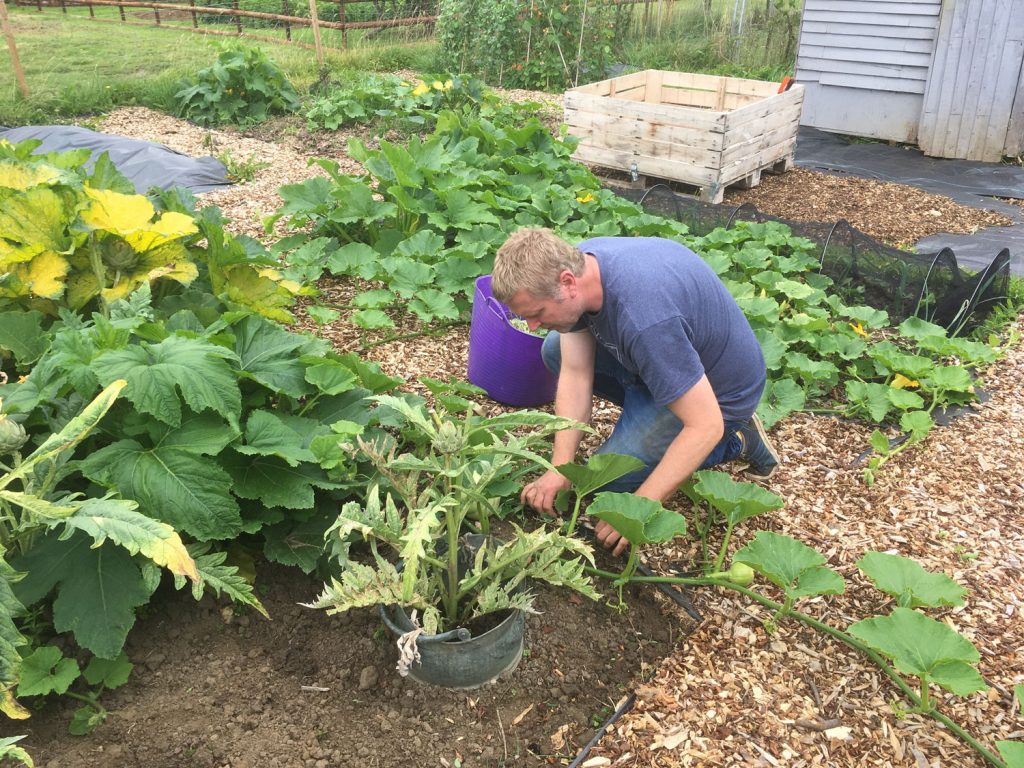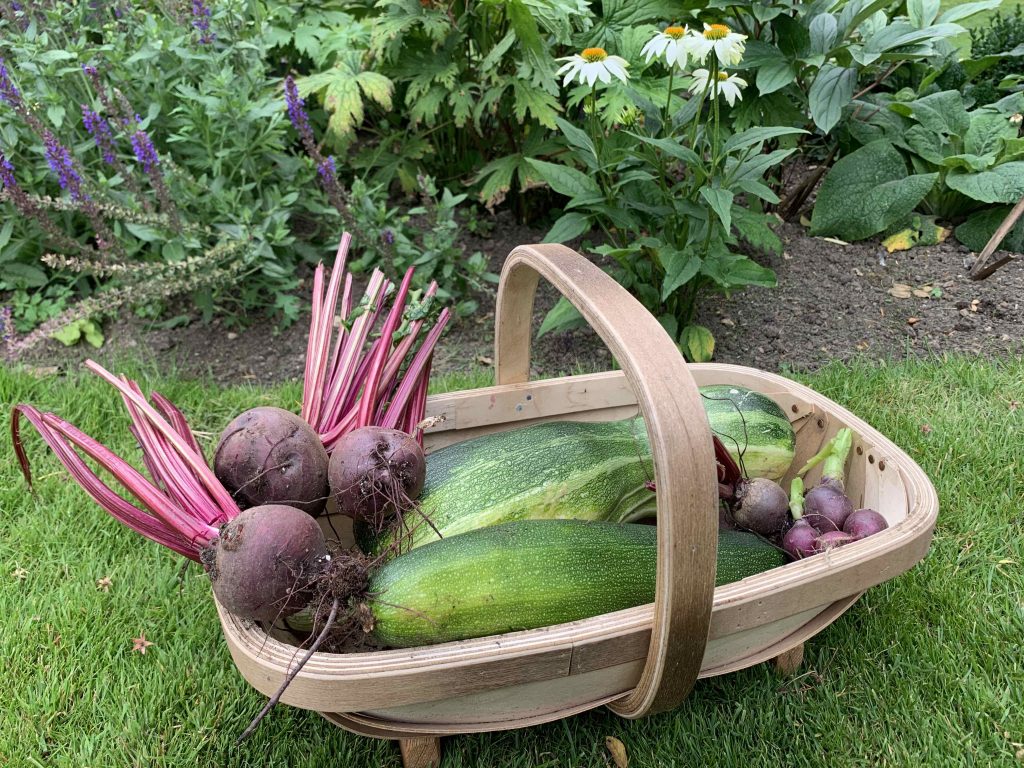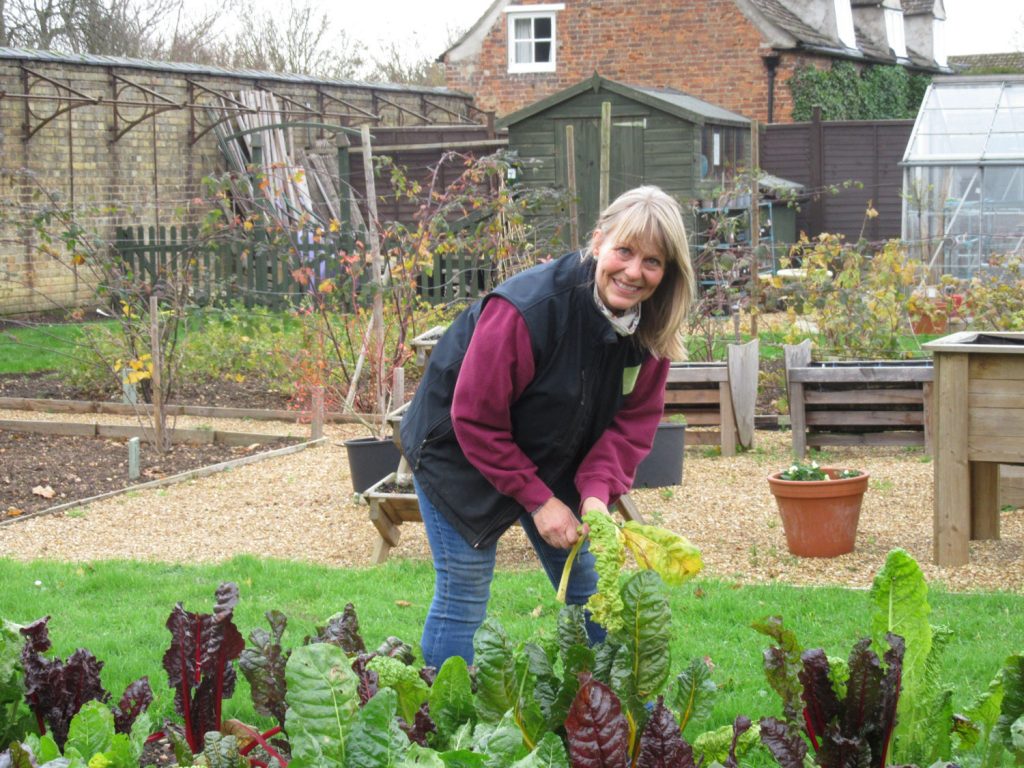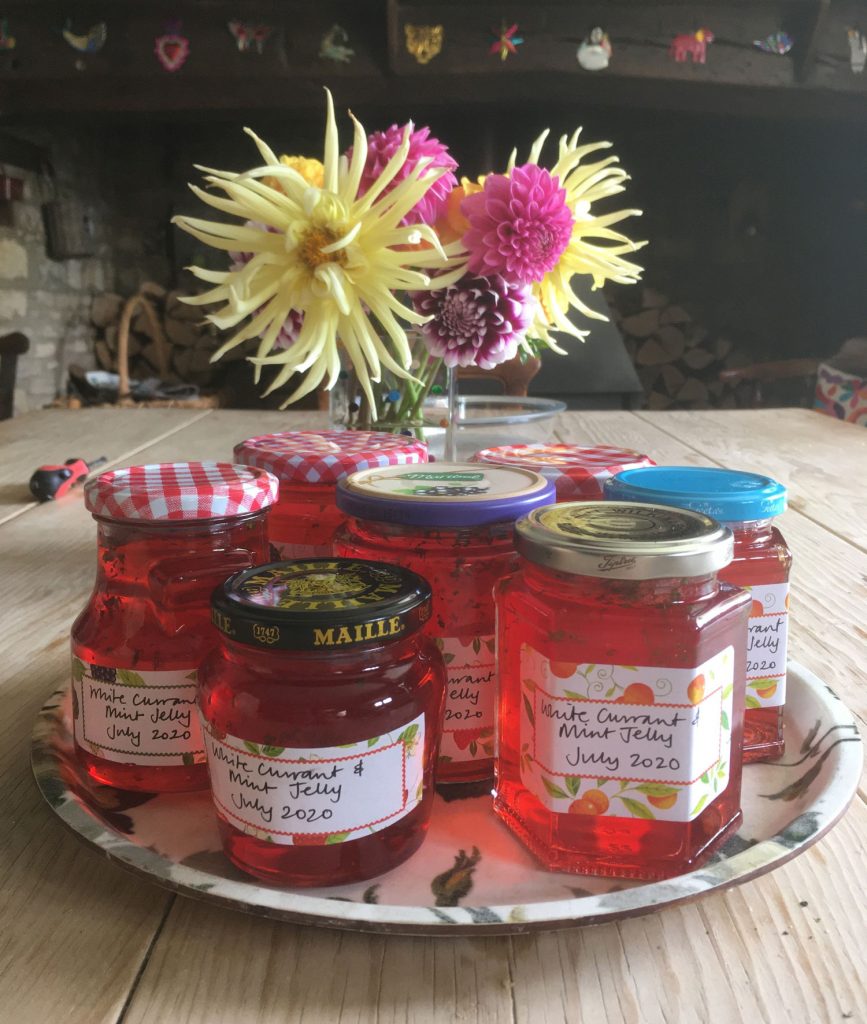Local people: The good life
29th December 2020
New allotment holders, Rebecca Downey and family, discovered the joys of getting to grips with their plot during a year of lockdown restrictions in 2020
Staring at an overgrown and neglected plot on a frosty January morning was an overwhelming experience. I have to confess the prospect of all that digging and weeding filled me with dread; when would we find the time? It would certainly involve bribing our teenage sons to help out and giving up many precious weekends. But what we didn’t foresee was the impact of the coronavirus pandemic and the subsequent travel restrictions. Fairly quickly, visits to our allotment became a lifesaver, when work and exercise routines were thrust out of kilter.

The benefits
Mahatma Gandhi put it best: ‘To forget how to dig the earth and to tend the soil is to forget ourselves.’ We’re all aware of the benefits of gardening in terms of tackling obesity and inactivity; it’s the perfect foil to a sedentary job sitting in front of a screen. Even my son’s efforts were rewarded when he unearthed a silver World War II Air Raid Precautions (ARP) lapel badge (above). I’m sure the Covid crisis has enabled many of you to produce gardens bursting with colourful blooms and prizeworthy vegetables and to tackle projects and DIY jobs that were mothballed years ago. Moreover, the glorious spring was a thankful blessing, which not only lifted our spirits, but also provided the lumens and vitamin D, vital to fighting flu viruses. For me, the satisfaction gained from preparing the bed, planting the seed, nurturing the plant and eating the produce was the perfect stress relief to the horrifying statistics and the increasing news of loss and grief.
The background
Allotments date back to Anglo Saxon times, but the scheme we know today began in 1908 as a means of supplying the labouring poor with food provision. A typical 10-pole plot (around 250 square metres) was considered enough land to feed a family for a year. Plot allocation became popular after World War I, enabling returning servicemen to provide for their families at a very reasonable rent. Today’s rents start at £25 a year (although £50–100 is not uncommon in this region); half-size plots are available in many cases, so you can really save money on your food bill and make a good return, when you consider that a packet of seeds is just a few pence.

A sense of community
Working alongside like-minded people in a community space during a time of social distancing has been hugely rewarding. It is easy to chat from plot to plot without breaking the two-metre rule, and though I was fearful of getting it all wrong, my fellow allotment holders have been nothing less than enthusiastic: tips and advice from old timers have always been helpful, and their generosity with leftover vegetable sets, tools, plants and produce has been most gratefully received. Nothing tastes as good as homegrown, and returning from the plot with a ruddy-cheeked glow and a trug full of vegetables for supper (free of pesticides) creates an enormous sense of wellbeing; not to mention the joy of sharing the glut with friends and villagers during a time when getting to the shops has been difficult and money tight.
The Secret Garden

This sentiment is echoed by Diane Ray, gardener at the Secret Garden in Bosworth’s Garden Centre in Elton. Diane notes the many positive aspects of the garden: ‘Our aim is to provide some food for the tearoom, but more importantly this space, created by a team of volunteers, is a sanctuary for people who may be out of work, retired, wishing to contribute to society or suffering with anxiety or mental-health issues. Just breathing the fresh air and the proximity to nature can ameliorate loneliness and alleviate stress.’ Diane has struggled to keep on top of jobs during the lockdown without her team of volunteers and will be looking for help this coming spring to get back on track. She cites the Royal Horticultural Society’s ‘Step-by-Step Veg Patch – Foolproof Growing for Gardeners with Little Space’ as her go-to handbook. ‘Bosworths has exciting plans for the other side of the wall… we will be featuring a range of RHS “award of garden merit” plants, so I hope this will draw more people to wander through the iron gate to explore The Secret Garden and perhaps get involved.’
Working with nature
It’s not entirely about growing vegetables… many holders keep hens and bees – though be sure to equip yourself with the rules on quantity and care, and be mindful of how this impacts your neighbouring allotment holders. Encourage wild flowers and fill awkward spaces or brighten up borders with your favourite blooms to give vital sustenance to the insect population. Triffid-like sunflowers bring joy to growers of all ages, and the birds love them. Homegrown cut flowers featured in our house all summer and made inexpensive gifts, as did the jars of jams and chutneys made from our gleanings.
As spring emerges, I look forward to my daily visit to our plot, which will involve a little purposeful activity and a lot of pottering. I’m excited to see how it will evolve over 2021, as the plot thickens – but hopefully with fewer courgettes.

TOP TIPS
• Contact your local town or parish council to register your interest and apply for a plot. If waiting lists at your local allotments are long, consider volunteering at community green space projects (see below). The National Allotment Society’s website is a one-stop-shop for all queries and advice: nsalg.org.uk
• Grow what you like to eat. Plant some soft fruit bushes if you’re overwhelmed by the space; these are low maintenance and will keep on giving year after year.
• Repurposing is key and cheap. Old trampolines and tent frames can be reused to create fruit cages, polytunnels and plant supports. Old shower screens and window frames can be adapted to make a cold frame. Broken buckets and wire from old lampshades can be used to support crops such as globe artichokes.
• Pallets and old bits of wood are so useful that you will struggle to walk past a skip without wanting to have a good rummage. Create raised beds with lengths of wood, while pallets are perfect for compost containers and fencing, or, if you just stack and screw them together, for a sumptuous bug hotel.
• Weeds can be problematic, and it’s a constant battle to stay on top of them, but you can put them to use and turn some (such as dandelions) into liquid fertiliser or ‘weed tea’, as it’s often known.
• Companion planting saves on space. Choose species that attract predatory insects or disguise vulnerable plants. Crops such as sweet corn or beans grow well with squash, as one grows up and the other grows along. Nasturtiums and marigolds are excellent companions to most brassicas, squash, tomato, radish and potato; they control pests, add colour and beauty to a plot, and are also edible. Borage improves the flavour of squash and deters tomato worms, while its cucumber flavour makes it a welcome addition to a glass of Pimm’s – its delicate star-shaped flowers are a lovely addition to a Pimm’s, too; however, borage is a voracious self-seeder, so needs careful maintenance to avoid it dominating your plot.
• Improve the quality of the soil in the garden through crop rotation. Encourage diversity: grow flowers to sustain insect populations, pollination and encourage natural predation.
• Use natural deterrents and barriers (eg eggshells or jars of water) to deter slugs and unwanted bugs, rather than pesticides. Large plastic bottles with lids off and bottoms cut out make excellent mini cloches for protecting young seedlings.
LOCAL COMMUNITY GARDENS
The Secret Garden at Bosworth’s Garden Centre, Elton
Bosworth’s garden centre is set the beautiful surroundings of Elton Hall. The revitalised kitchen garden is managed by Diane Ray and a group of volunteers, providing produce for the tearoom and has become a wonderful green space for those looking to share their knowledge or get back in touch with nature. For all enquires email: elton@bosworthsgc.co.uk. Also visit: bosworthsgc.co.uk/elton
Root and Branch Out
Set up by Claire Crowley and Alex Wilby, this organisation comprises three community growing spaces in Rutland: Rutland Farm Park, Cold Overton Road car park in Oakham and the Kendrew Barracks in Cottesmore. The two primary schools in Uppingham now boast allotment beds thanks to this dynamic duo, who also run a Forest School and the Fill Yer Boots campaign, which redistributes surplus food from Tesco to families in need. For donations and volunteering enquiries email: rootandbranchout@gmail.com. Also visit: rootandbranchout.co.uk
The Green Backyard
This is another community garden that is actively shaping the city space to become a centre for sustainability, shared resources, learning and artistic enterprise. The two-acre urban green space situated next to the Apex block in Peterborough, off the Oundle Road, runs courses in green crafts, foraging, garden design and campfire cooking to name a few. It relies on its team of trustees and volunteers to thrive. thegreenbackyard.com
Mindspace Community Garden in Stamford
This emerging site on the Uffington Road recently received a grant of £2,500 from the Dulverton Trust to help get the project off the ground. Plans are underway to make this space a real haven for the community. For volunteering and donation queries, email: info@mindspacestamford.com. More information on the charity at: mindspacestamford.com



